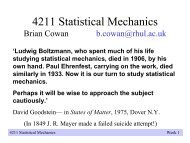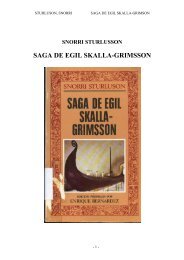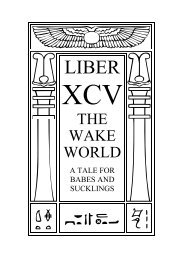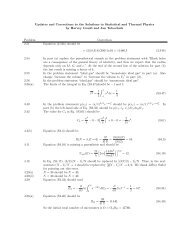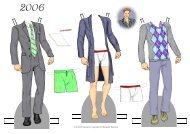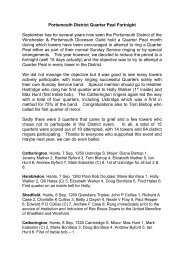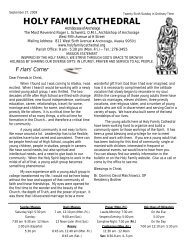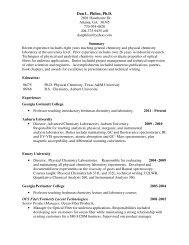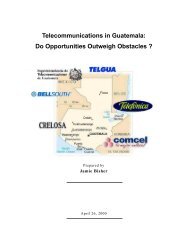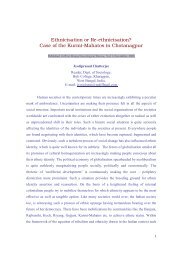Essays on Suicide and the Immortality of the Soul: - WebRing
Essays on Suicide and the Immortality of the Soul: - WebRing
Essays on Suicide and the Immortality of the Soul: - WebRing
You also want an ePaper? Increase the reach of your titles
YUMPU automatically turns print PDFs into web optimized ePapers that Google loves.
ESSAYS ON SUICIDE AND THE IMMORTALITY OF THE SOUL<br />
ESSAY II. ON THE IMMORTALITY OF THE SOUL.<br />
BY <strong>the</strong> mere light <strong>of</strong> reas<strong>on</strong> it seems difficult to prove <strong>the</strong> <strong>Immortality</strong> <strong>of</strong> <strong>the</strong> <strong>Soul</strong>; <strong>the</strong><br />
arguments for it are comm<strong>on</strong>ly derived ei<strong>the</strong>r from metaphysical topics, or moral or physical.<br />
But in reality 'tis <strong>the</strong> Gospel <strong>and</strong> <strong>the</strong> Gospel al<strong>on</strong>e, that has brought life <strong>and</strong> immortality to<br />
light.<br />
I. METAPHYSICAL topics suppose that <strong>the</strong> soul is immaterial, <strong>and</strong> that 'tis impossible {24}<br />
for thought to bel<strong>on</strong>g to a material substance. -- ([editor's note] 1) But just metaphysics<br />
teach us that <strong>the</strong> noti<strong>on</strong> <strong>of</strong> substance is wholly c<strong>on</strong>fused <strong>and</strong> imperfect, <strong>and</strong> that we have no<br />
o<strong>the</strong>r idea <strong>of</strong> any substance, than as an aggregate <strong>of</strong> particular qualities, inhering in an<br />
unknown something. Matter, <strong>the</strong>refore, <strong>and</strong> spirit, are at bottom equally unknown, <strong>and</strong> we<br />
cannot determine what qualities inhere in <strong>the</strong> <strong>on</strong>e or in <strong>the</strong> o<strong>the</strong>r. ([editor's note] 2) They<br />
likewise teach us that nothing can be decided a priori c<strong>on</strong>cerning any cause or effect, <strong>and</strong><br />
that experience being <strong>the</strong> <strong>on</strong>ly source <strong>of</strong> our judgements <strong>of</strong> this nature, we cannot know from<br />
any o<strong>the</strong>r principle, whe<strong>the</strong>r matter, by its structure or arrangement, may not be <strong>the</strong> cause<br />
<strong>of</strong> thought. Abstract reas<strong>on</strong>ings cannot decide any questi<strong>on</strong> <strong>of</strong> fact or existence. -- But<br />
admitting a spiritual substance to be dispersed throughout <strong>the</strong> universe, like <strong>the</strong> e<strong>the</strong>rial fire<br />
<strong>of</strong> <strong>the</strong> Stoics, <strong>and</strong> to be <strong>the</strong> <strong>on</strong>ly inherent subject <strong>of</strong> thought, we have reas<strong>on</strong> to c<strong>on</strong>clude {25}<br />
from analogy that nature uses it after <strong>the</strong> manner she does <strong>the</strong> o<strong>the</strong>r substance, matter. She<br />
employs it as a kind <strong>of</strong> paste or clay; modifies it into a variety <strong>of</strong> forms <strong>and</strong> existences;<br />
dissolves after a time each modificati<strong>on</strong>, <strong>and</strong> from its substance erects a new form. As <strong>the</strong><br />
same material substance may successively compose <strong>the</strong> bodies <strong>of</strong> all animals, <strong>the</strong> same<br />
spiritual substance may compose <strong>the</strong>ir minds: Their c<strong>on</strong>sciousness, or that system <strong>of</strong> thought<br />
which <strong>the</strong>y formed during life, may be c<strong>on</strong>tinually dissolved by death. And nothing interests<br />
<strong>the</strong>m in <strong>the</strong> new modificati<strong>on</strong>. The most positive asserters <strong>of</strong> <strong>the</strong> mortality <strong>of</strong> <strong>the</strong> soul, never<br />
denied <strong>the</strong> immortality <strong>of</strong> its substance. And that an immaterial substance, as well as a<br />
material, may lose its memory or c<strong>on</strong>sciousness, appears in part from experience, if <strong>the</strong> soul<br />
be immaterial. -- Reas<strong>on</strong>ing from <strong>the</strong> comm<strong>on</strong> course <strong>of</strong> nature, <strong>and</strong> without supposing any<br />
new interpositi<strong>on</strong> <strong>of</strong> <strong>the</strong> supreme cause, which ought always to be excluded from philosophy,<br />
{26} what is incorruptible must also be ingenerable. The <strong>Soul</strong> <strong>the</strong>refore if immortal, existed<br />
before our birth; <strong>and</strong> if <strong>the</strong> former existence no ways c<strong>on</strong>cerned us, nei<strong>the</strong>r will <strong>the</strong> latter. --<br />
Animals undoubtedly feel, think, love, hate, will, <strong>and</strong> even reas<strong>on</strong>, tho' in a more imperfect<br />
manner than men; are <strong>the</strong>ir souls also immaterial <strong>and</strong> immortal? ([editor's note] 3)<br />
II. LET us now c<strong>on</strong>sider <strong>the</strong> moral arguments, chiefly those derived from <strong>the</strong> justice <strong>of</strong> God,<br />
which is supposed to be far<strong>the</strong>r interested in <strong>the</strong> far<strong>the</strong>r punishment <strong>of</strong> <strong>the</strong> vicious <strong>and</strong><br />
reward <strong>of</strong> <strong>the</strong> virtuous. -- But <strong>the</strong>se arguments are grounded <strong>on</strong> <strong>the</strong> suppositi<strong>on</strong> that God has<br />
attributes bey<strong>on</strong>d what he has exerted in this universe, with which al<strong>on</strong>e we are acquainted.<br />
Whence do we infer <strong>the</strong> existence <strong>of</strong> <strong>the</strong>se attributes? -- 'Tis very safe for us to affirm, that<br />
whatever we know <strong>the</strong> Deity to have actually d<strong>on</strong>e, is best; but 'tis very dangerous to affirm,<br />
that he must always do {27} what to us seems best. In how many instances would this<br />
reas<strong>on</strong>ing fail us with regard to <strong>the</strong> present world? -- But if any purpose <strong>of</strong> nature be clear,<br />
we may affirm, that <strong>the</strong> whole scope <strong>and</strong> intenti<strong>on</strong> <strong>of</strong> man's creati<strong>on</strong>, so far as we can judge<br />
by natural reas<strong>on</strong>, is limited to <strong>the</strong> present life. With how weak a c<strong>on</strong>cern from <strong>the</strong> original<br />
inherent structure <strong>of</strong> <strong>the</strong> mind <strong>and</strong> passi<strong>on</strong>s, does he ever look far<strong>the</strong>r? What comparis<strong>on</strong><br />
ei<strong>the</strong>r for steadiness or efficacy, betwixt so floating an idea, <strong>and</strong> <strong>the</strong> most doubtful<br />
persuasi<strong>on</strong> <strong>of</strong> any matter <strong>of</strong> fact that occurs in comm<strong>on</strong> life. There arise indeed in some<br />
minds some unaccountable terrors with regard to futurity; but <strong>the</strong>se would quickly vanish<br />
were <strong>the</strong>y not artificially fostered by precept <strong>and</strong> educati<strong>on</strong>. And those who foster <strong>the</strong>m,<br />
what is <strong>the</strong>ir motive? Only to gain a livelihood, <strong>and</strong> to acquire power <strong>and</strong> riches in this<br />
world. Their very zeal <strong>and</strong> industry <strong>the</strong>refore is an argument against <strong>the</strong>m. {28}<br />
WHAT cruelty, what iniquity, what injustice in nature, to c<strong>on</strong>fine all our c<strong>on</strong>cern, as well as<br />
all our knowledge, to <strong>the</strong> present life, if <strong>the</strong>re be ano<strong>the</strong>r scene still waiting us, <strong>of</strong> infinitely<br />
greater c<strong>on</strong>sequence? Ought this barbarous deceit to be ascribed to a beneficent <strong>and</strong> wise<br />
being? -- Observe with what exact proporti<strong>on</strong> <strong>the</strong> task to be performed <strong>and</strong> <strong>the</strong> performing<br />
powers are adjusted throughout all nature. If <strong>the</strong> reas<strong>on</strong> <strong>of</strong> man gives him great superiority<br />
above o<strong>the</strong>r animals, his necessities are proporti<strong>on</strong>ably multiplied up<strong>on</strong> him; his whole time,<br />
his whole capacity, activity, courage, <strong>and</strong> passi<strong>on</strong>, find sufficient employment in fencing<br />
Get any book for free <strong>on</strong>: www.Abika.com<br />
8



